
Published on ConservativeHome.com on 06 December 2023.
As the US Congress resumes its debate over support for Israel and Ukraine, my latest 10,000-sample poll looks at how American voters view these crucial issues, as well as some wider questions on their country’s role in the world.
Several things stood out from our initial question on whether people considered various countries to be allies or adversaries of the US. One is the majority view of Israel as a friend and ally. The 63 per cent taking this view is up three points since my previous poll in September, conducted before the Hamas terrorist attacks on 7 October – though many would surely have hoped and expected that number to be higher.
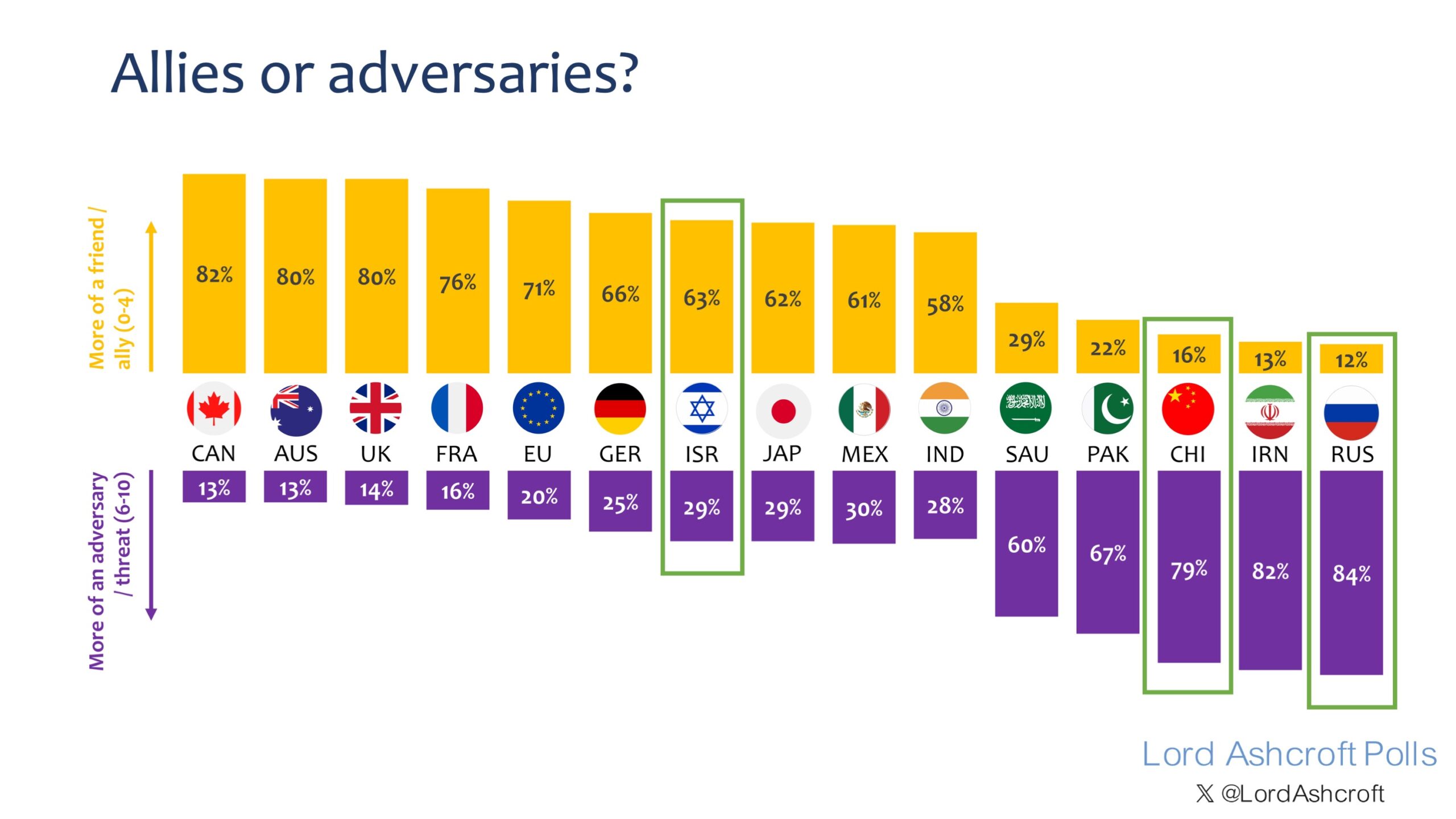
Another point is the position of China, which 79 per cent of Americans see as an adversary or threat – nearly as many as say the same for Iran. In my September focus groups, voters of all stripes saw China as an aggressive and untrustworthy competitor, if not actually an enemy. They saw China using its economic influence and technological capability to gain power around the globe, and worried about China investing in land and property in the US – or as they nearly always put it, “buying American soil”.
Though many favoured a tougher approach to China, they wondered what this would mean in practice. The only answer they could see was greater economic independence for the US, especially when it came to manufacturing. Many noted that this had been a big theme of the Trump presidency, and were not sure that such efforts were continuing under Joe Biden.
Finally, there is the position of Russia, which 84 per cent see in the same light – with very little difference between Republicans and Democrats.
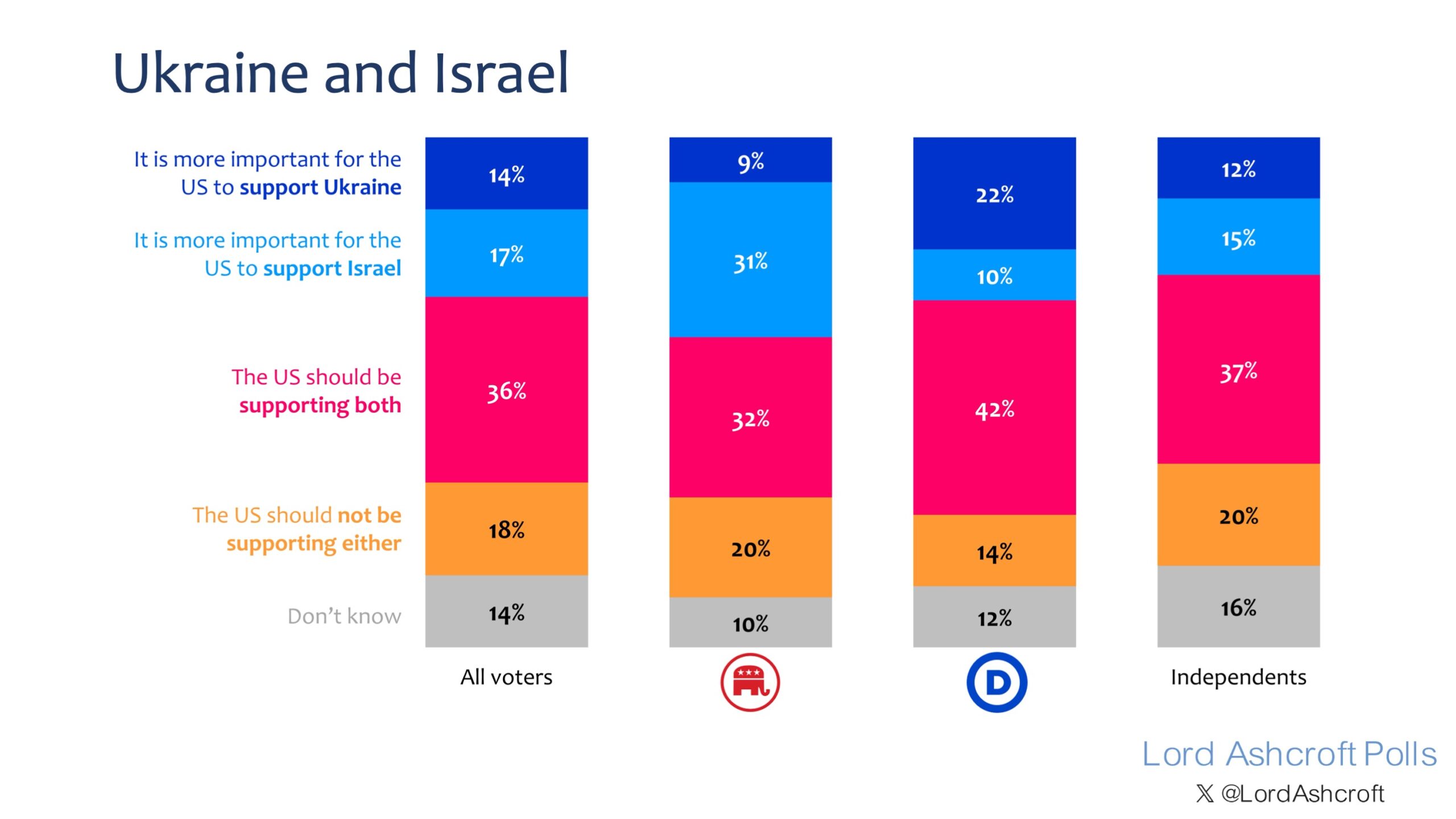
We asked voters how they felt about US government support for Israel and Ukraine. Overall, two thirds – including just under three quarters of both Republicans and Democrats – agreed the US should be supporting one or both. Democrats were notably more likely to say America should be supporting both countries. Only just under one in five overall said they should be supporting neither.
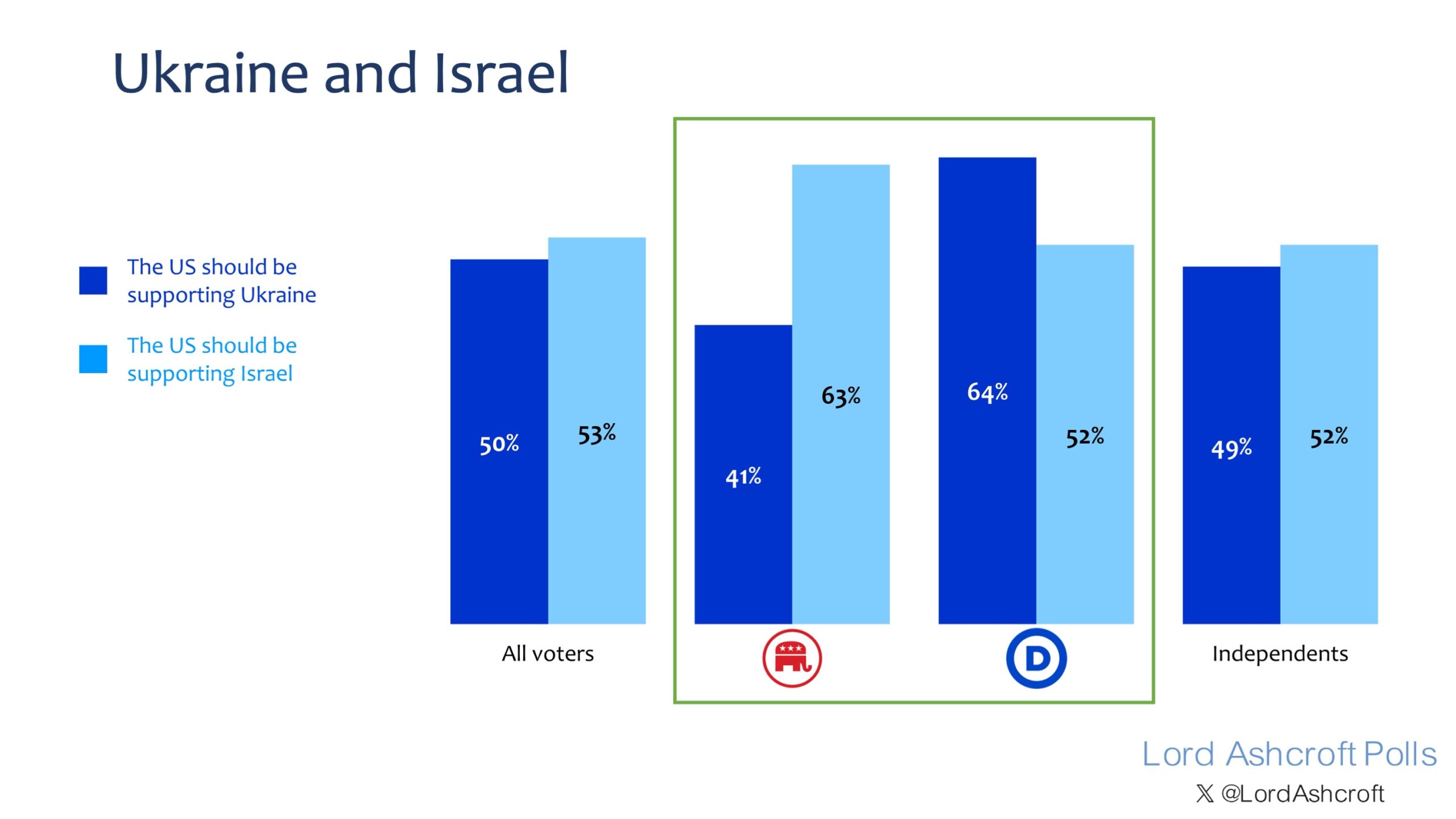
We see a bigger contrast between party supporters when we look at the totals saying America should support each country: 63 per cent of Republicans say the US should be helping Israel, compared to 41 per cent saying they should help Ukraine.
The Democrat side is almost a mirror image, with 64 per cent favouring support for Ukraine but only just over half saying the same for Israel. Strikingly, only 35 per cent of 18 to 24 year-olds said they thought the US should be supporting Israel at the moment.
This helps to explain why, in a separate question, I found 42 per cent of this age group saying their opinion of Biden had changed for the worse over the last few weeks, more than any other demographic group: almost certainly a reaction to his firm support for Israel – ironically one of the few stances many of Biden’s opponents would applaud.
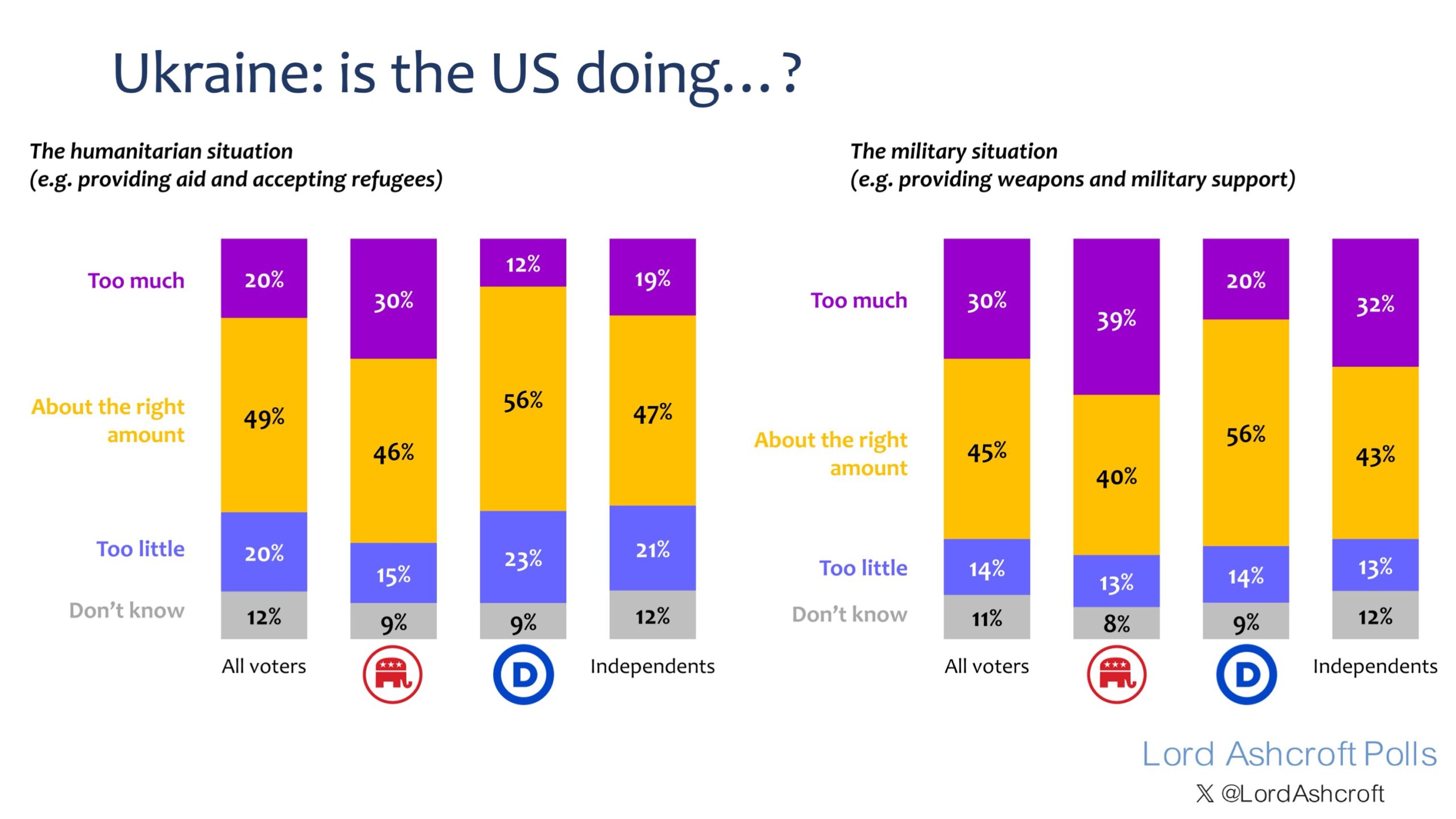
We asked more about America’s role in helping Ukraine. While a plurality think the US has got its humanitarian response about right, nearly four in ten Republicans think that in terms of military support, America is already doing too much. Even so, just over half of them, and 70 per cent of Democrats, say the US is doing the right amount or could do more.
Our September focus groups shed more light on these attitudes. Biden voters tended to think the administration was striking a reasonable balance, helping Ukraine as much as was practical without provoking Russian retaliation or escalation. Republicans tended to have two worries. One was that the US was helping enough to prolong the conflict and produce an indefinite stalemate rather than outright Ukrainian victory.
The other was that precious dollars were being spent on a conflict involving no direct American interest that they could see, at a time when those dollars were badly needed at home – and that the US seemed to be taking more than its fair share of the burden in comparison with other allies. Fairly or not, several drew the contrast between the billions of US dollars spent in Ukraine and the $700 offered to households affected by the wildfires in Hawaii. The numbers in by November poll bear this out.
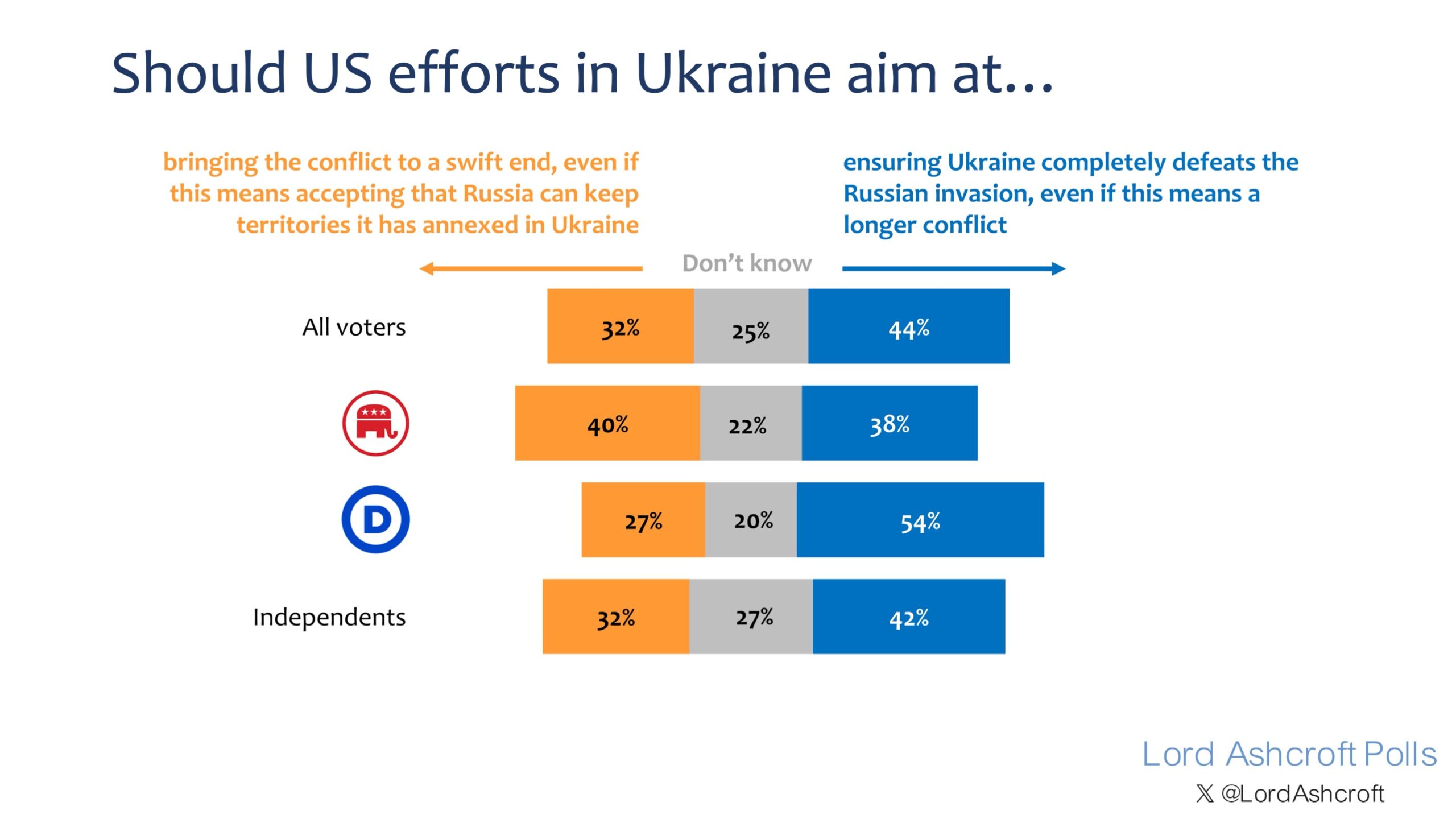
While most Democrats think the US should aim to help ensure that Ukraine completely defeats the invasion, Republicans are more divided. In fact, they lean slightly the view that American efforts should focus on bringing the conflict to a swift end, even if this means a compromise over territory already annexed by Russia.
However, there was a clear difference between the rival Republican camps. While Trump-supporting primary voters favoured a swift end by 44 per cent to 35 per cent, non-Trump primary voters wanted to aim for outright victory by an even wider margin.
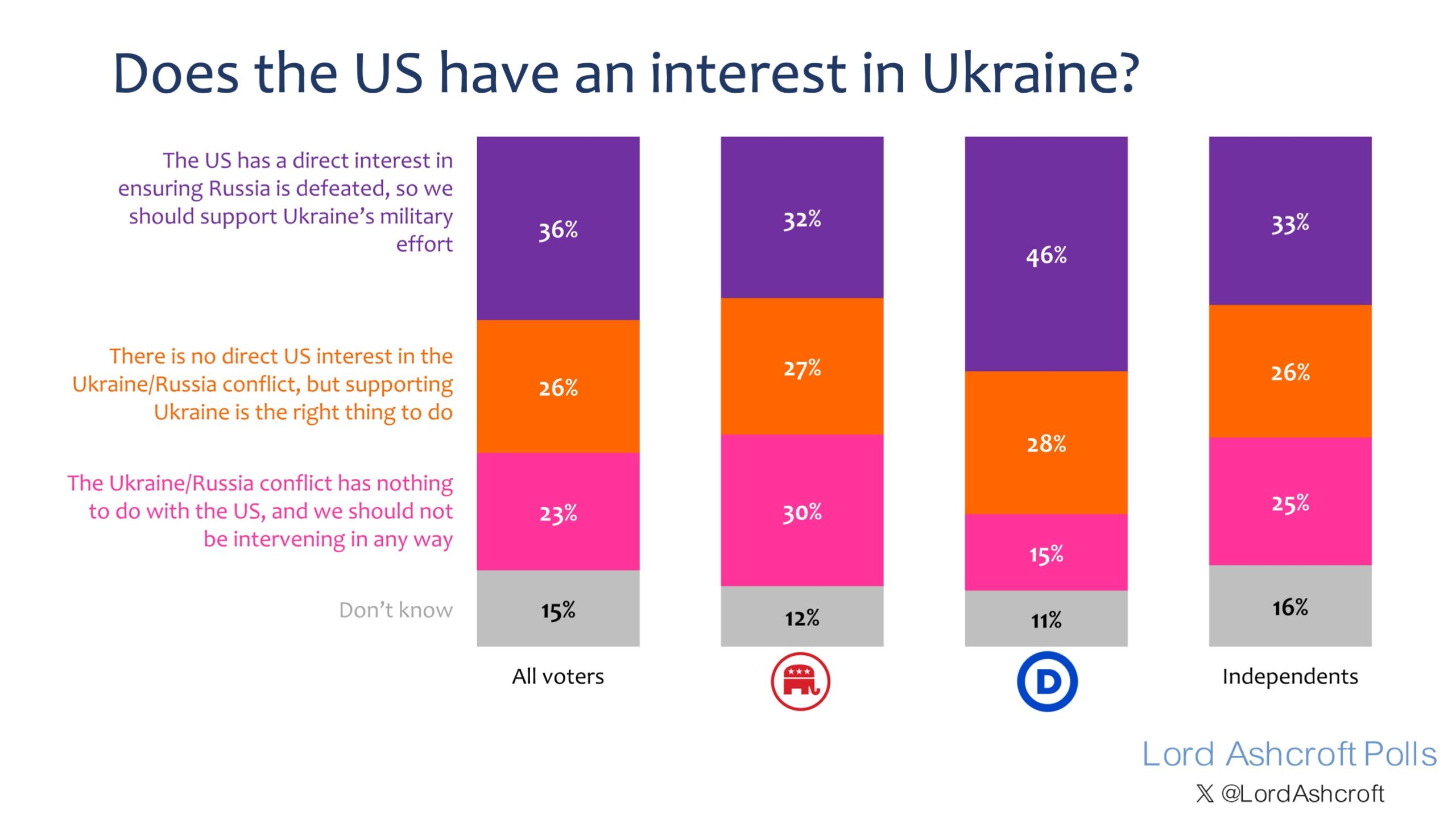
Only just under one third of Republicans say they think the US has a direct interest in ensuring Russia is defeated, compared to just under half of Democrats. On top of that, similar proportions agree that supporting Ukraine is the right thing to do even if no direct US interest is involved. Only three in ten Republicans – though twice as many as on the Democrat side – think the conflict has nothing to do with the US and that they should not be intervening in any way.
Once again, non-Trump primary voters are significantly more likely than Trump supporters to say there is a US interest at stake, or that supporting Ukraine was simply the right thing to do.

If this is all rather disheartening for those wanting to see robust American is for Ukraine, I tested various arguments that might be deployed to shore up support for the cause. Just over half of Republicans, but two thirds of Democrats, agree that the US should stand up for freedom and democracy around the world wherever possible, even at some cost to America. We got similar results for the idea that withdrawing support from Ukraine would be seen around the world as a sign of American weakness.
And the pattern continued for our third proposition, which is that a Russian victory in Ukraine would make the world less stable and the United States less secure. In a separate question to explore this further, less than a quarter of Republicans agreed that strong US support for Ukraine would help discourage China from invading Taiwan. A majority of them – and half of Americans overall – thought either that US support for Ukraine was not strong enough to deter China, or that American action would make no difference to China’s intentions.
It is worth noting again that for each of the three statements we see here, agreement among non-Trump Republican primary voters was 10 points higher than it was among Trump supporters.
But as we can see all the way through, the variations in attitude by party support are largely differences of nuance or degree than fundamentally different outlooks. They have similar views about who is a friend and who is a foe, but slightly different views about exactly where America’s interests lie.
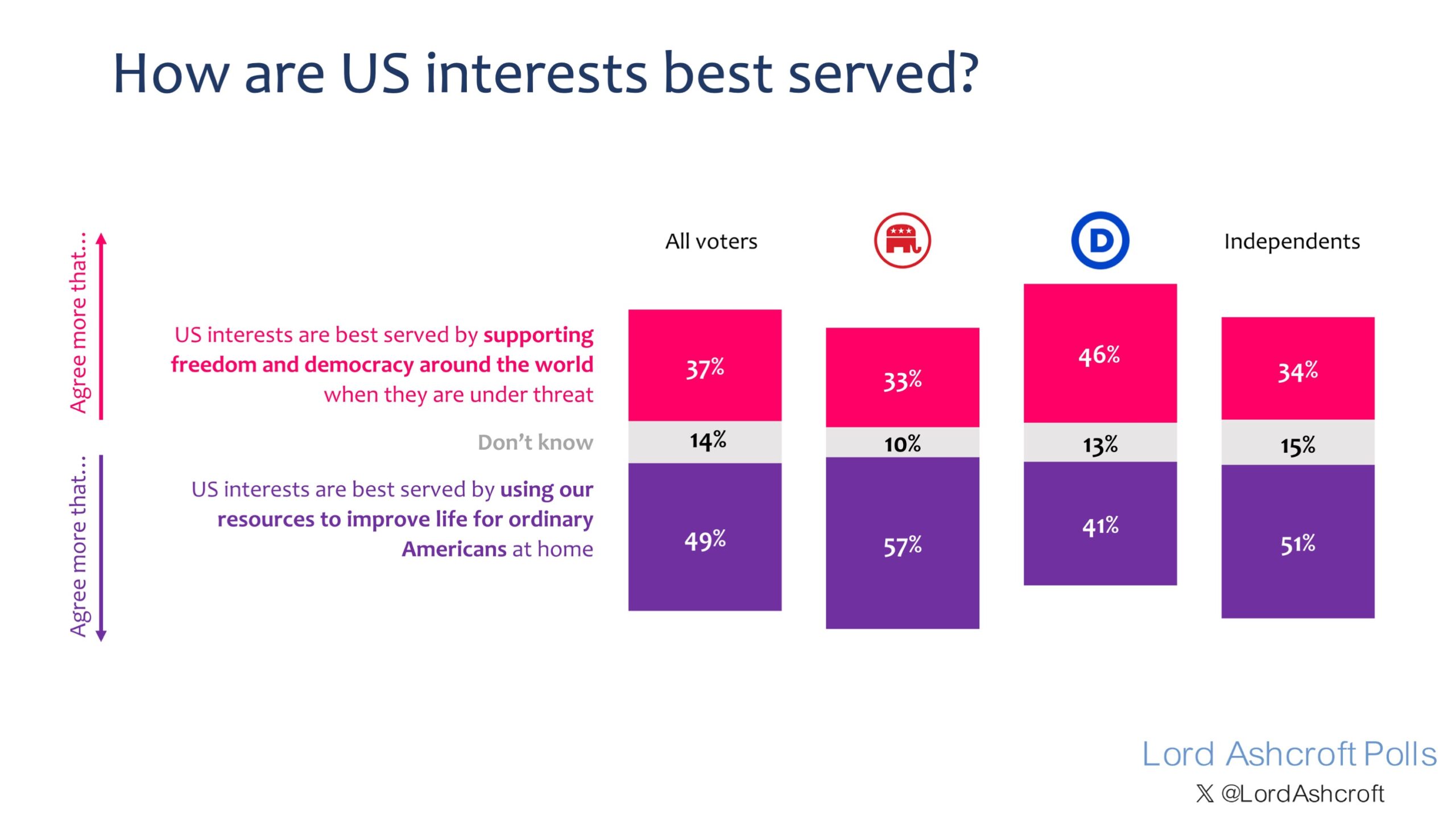
Much of the discrepancy is explained in this final question. While Democrats lean towards the idea that American interests are best served by defending freedom and democracy around the world, a clear majority of Republicans prefer the alternative statement – that US interests are best served by using our resources to improve life for ordinary Americans at home. Most of them are not isolationists, let alone Putin sympathisers – they just have a different view about the country’s priorities.
What are the implications for those who want to bring Americans, and especially Republicans, round to the idea of extending their commitment to Ukraine? First, to reinforce the view that the US must stand for freedom around the world in practice, not just in principle – and that the US is not the only country doing so. And second, to persuade them that defeating Russia in Ukraine is possible, and that doing so represents a direct US interest worth investing in.
ConservativeHome.com


